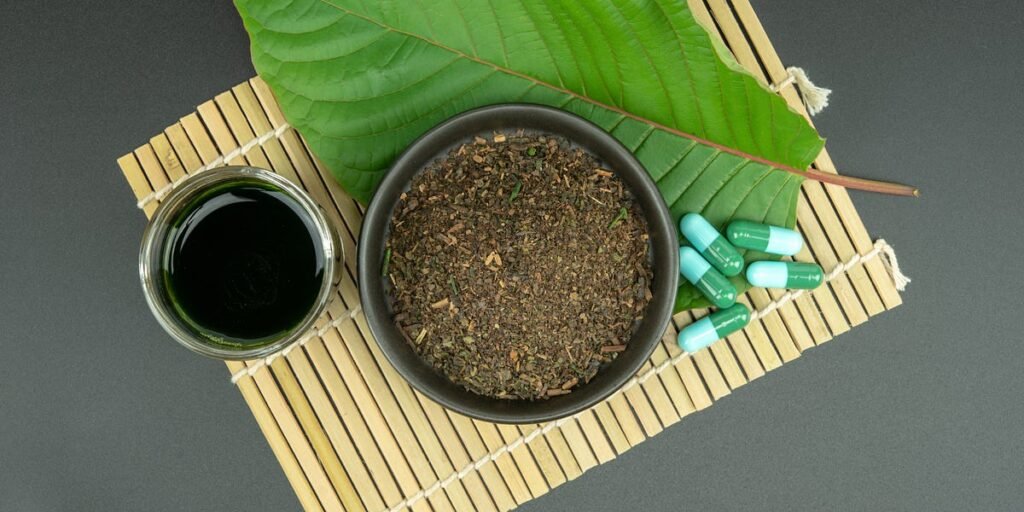The tragic story of Stephanie Ruhle Bell’s’ palsy, the family of Krystal Talavera, a 39-year-old mother of four who tragically lost her life after consuming kratom, has been awarded $11 million in a wrongful death lawsuit against a kratom distributor. This incident brings to the forefront the intricate web surrounding kratom, an herb with opioid-like effects, shedding light on the legal challenges, potential risks, and the growing debate on the need for regulatory oversight.
The Tragic Incident
Kratom’s Opioid-Like Effects

Krystal Talavera collapsed in her kitchen while preparing breakfast, with an open package of kratom labeled “Space Dust” by her side. The Palm Beach County Coroner attributed her death to “acute mitragynine intoxication,” highlighting the potency of mitragynine, a key chemical in kratom that mimics opioid effects at high concentrations, potentially leading to fatal consequences.
Kratom: A Legal Grey Area
FDA Caution and State Regulations
While the FDA has not approved kratom for sale in the U.S., the herb operates in a legal grey area, often sold online, in convenience stores, and gas stations. States like Alabama, Arkansas, and Wisconsin have banned kratom, emphasizing the varying legal landscape surrounding this controversial substance.
Divergent Opinions on Kratom
The FDA warns of potential risks associated with kratom, including liver toxicity, seizures, and the risk of substance use disorder. Despite these concerns, advocates argue that kratom aids in pain management and can support individuals in overcoming more dangerous opioids. Kratom’s purported benefits, however, remain inconclusive, with limited scientific evidence.
Legal Ramifications: The Lawsuit
Allegations Against Kratom Distributor
Talavera’s son filed a lawsuit against Grow LLC, operating as The Kratom Distro, alleging that the distributor, Sean Michael Harder, was responsible for her death. The lawsuit contends that the product was marketed as an all-natural supplement without adequate warnings about potential health hazards, emphasizing the lack of dosage recommendations on kratom packages.
The Regulatory Void and Advocacy
Current State of Regulation
The absence of federal regulation poses challenges, with kratom’s unregulated status leading to potential contamination and hazardous dosages. Advocates, including Talavera’s family and organizations like the American Kratom Association, call for increased regulatory oversight to ensure consumer safety.
The Push for Regulation
In the aftermath of Talavera’s death, there is a growing call for enhanced regulation of kratom products. The hope is to deter mom-and-pop shops and gas stations from selling kratom until a comprehensive regulatory framework is established.
The Debate on Kratom’s Benefits and Risks
Scientific Scrutiny and Public Perception
Scientifically, the benefits and risks of kratom remain unclear, with divergent opinions among medical experts. While testimonials highlight its potential for pain relief and addiction management, the lack of conclusive evidence raises concerns about its addictive properties and potential health risks.
Kratom’s Popularity and Limited Cases
Despite the controversy, a significant number of users, approximately 1.7 million in the U.S. in 2021, have reported no life-threatening side effects. The rarity of kratom-related deaths, accounting for only 91 out of over 27,000 overdose deaths in a specific period, raises questions about the substance’s direct role in fatalities.
The Way Forward
Legalization, Study, and Regulation
Some experts argue for the legalization, study, and regulation of kratom to establish clear guidelines, dosage recommendations, and safety warnings. The balance between addressing chronic pain and preventing substance misuse remains a complex challenge, requiring a nuanced approach to ensure public safety.
Stephanie Ruhle Bell’s’ palsy : Conclusion
As the legal aftermath of Talavera’s case unfolds, the conversation around kratom intensifies, underscoring the need for a comprehensive regulatory framework. The delicate balance between individual choice, public safety, and the potential benefits of kratom remains a subject of ongoing scrutiny and debate within medical and legal circles.
Read More: DOJ’s Mysterious Invitation to Iraqi Judge Faiq Zidan

